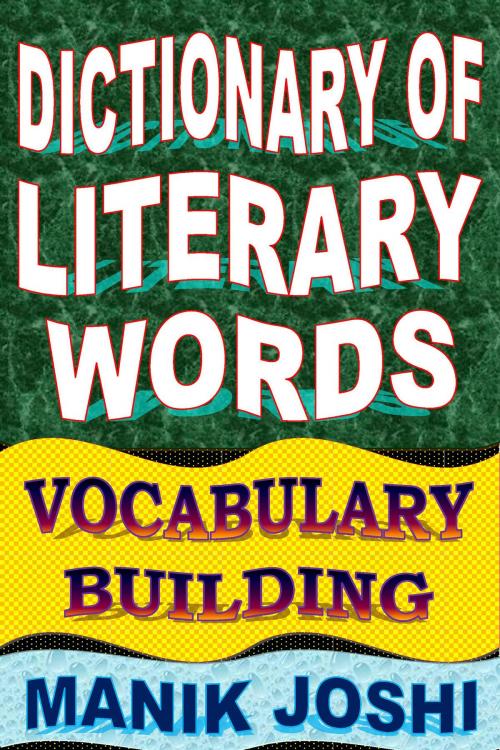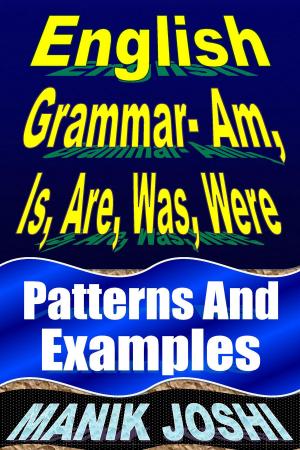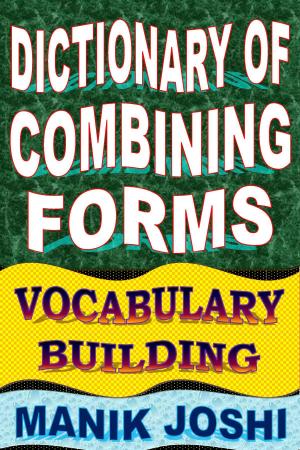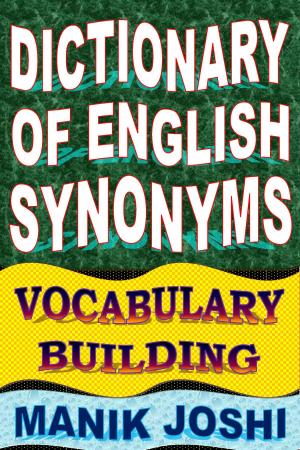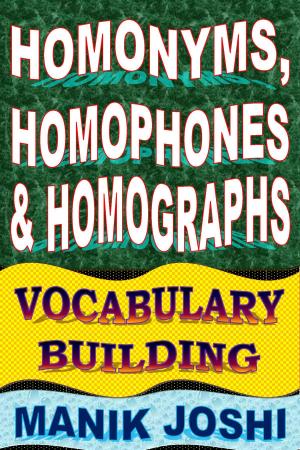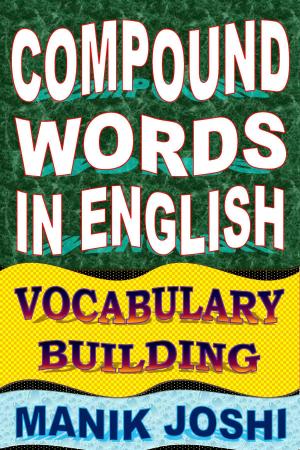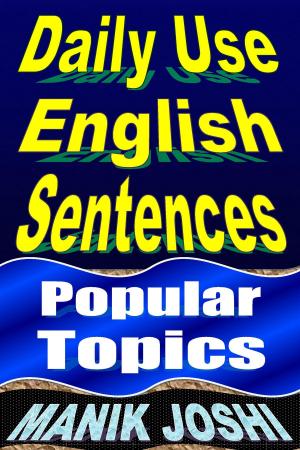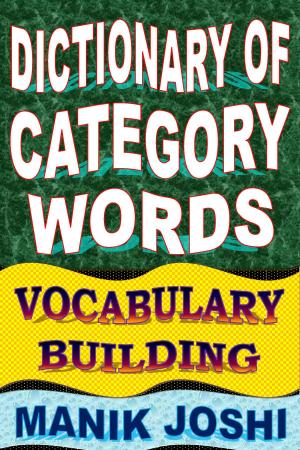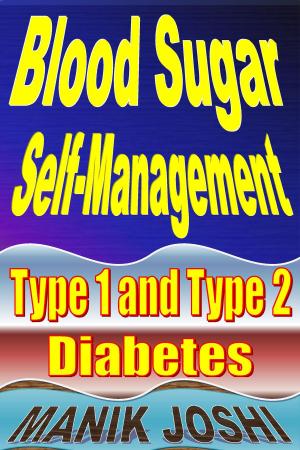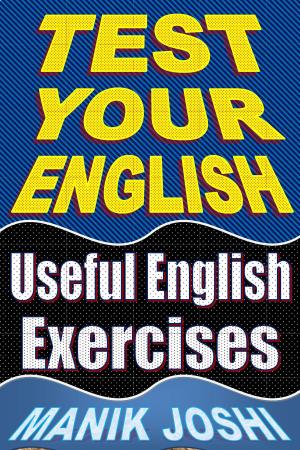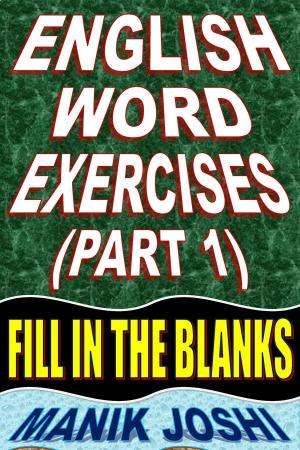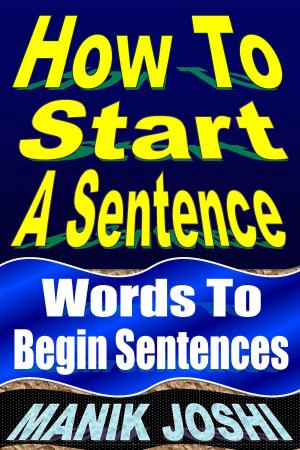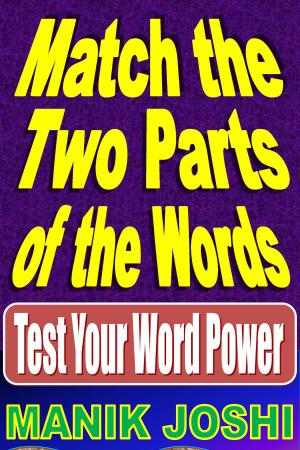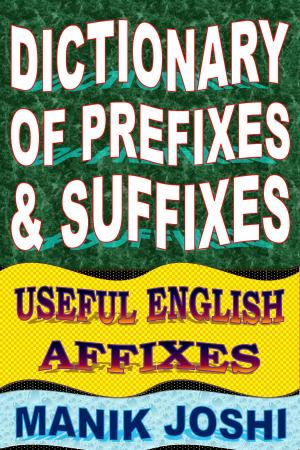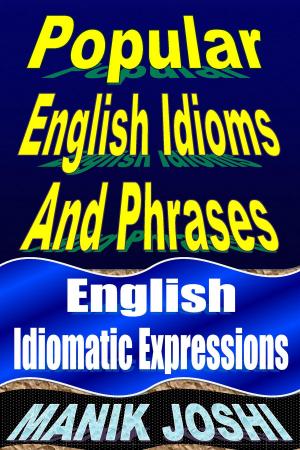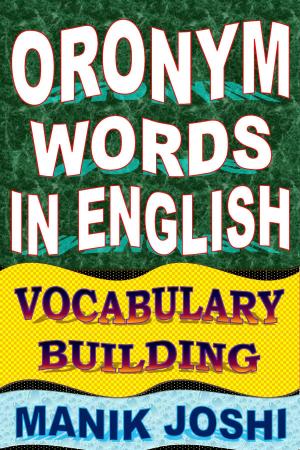Dictionary of Literary Words: Vocabulary Building
Nonfiction, Reference & Language, Education & Teaching, Higher Education, Study Aids, ESL, Foreign Languages| Author: | Manik Joshi | ISBN: | 9781311011411 |
| Publisher: | Manik Joshi | Publication: | June 26, 2014 |
| Imprint: | Smashwords Edition | Language: | English |
| Author: | Manik Joshi |
| ISBN: | 9781311011411 |
| Publisher: | Manik Joshi |
| Publication: | June 26, 2014 |
| Imprint: | Smashwords Edition |
| Language: | English |
WHAT ARE “LITERARY WORDS”?
‘Literary words’ are associated with literature.
‘Literary words’ are typical of a work of literature and imaginative writing.
‘Literary words’ are used with a particular meaning, in narrative, drama, poetry and other writing in a literary manner.
This book has been divided into three sections:
Section 01: Common Literary Words
Section 02: Figurative Use of the Words
Section 03: Glossary of Literary Terms
IMPORTANT NOTES
NOTE -- A:
ELEVATED WORDS
Use of an ‘Elevated’ Word in Place of a ‘Simple’ Word
‘Elevated language’ is widely used in literature.
Elevated Word -- a word that is used to show a high intellectual level
Simple Word -- a word that is used to keep conversation simple in daily life
Example 1:
‘Behold’ [elevated word] | ‘See’ [simple word]
Meaning of ‘behold’ and ‘see’:
to become aware of something by using your eyes
Example 2:
‘Blithe’ [elevated word] | ‘Happy’ [simple word]
Meaning of ‘blithe’ and ‘happy’:
showing or feeling pleasure
NOTE -- B:
FIGURATIVE USE OF THE WORDS
Many words and phrases are used in a different (literary) way from their usual (literal) meanings to produce a special effect. [I have put these words together in Section-2 (figurative use of the words) of this book.]
Example-1:
ache: In general sense -- to feel a continuous pain
His leg ached because of injury.
ache: In literary sense -- to be very sad
His false accusations made our heart ache. [= made us sad]
Example-2:
Flash: In general sense -- to shine brightly for a few moments
Camera flashed once.
Flash: In literary sense -- to suddenly show a strong emotion
Their eyes flashed with horror.
NOTE -- C:
‘LITERARY TERMS’
There are many words which are used to describe particular form of writing in a literary work, or used in analysis, discussion, classification, and criticism of a literary work. [I have defined these terms in Section-3 (glossary of literary terms) of this book.]
Examples:
catharsis -- the process of releasing strong feelings through artistic activities
diction -- the choice and use of words to create a specific effect in a literary work
epithet -- a word or expression used to attribute special quality to somebody/something
genre -- a particular category, style or type to which a literary wok belongs
holograph -- handwritten piece of writing by its author
idyll -- a poem that describes a peaceful and happy scene
juvenilia -- a literary work produced by an artist, in his/her youth
melodrama -- a literary work that is full of exciting and exaggerated events or emotions
opera -- a dramatic work where a majority of the words are sung to music
panegyric -- a speech or written composition that praises somebody/something
prosody -- the patterns of rhythms and sounds in poetry
quatrain -- a verse of a poem that has four lines
refrain -- a line or number of lines of a song or poem that is repeated after each verse
scene -- one of the small sections within an act (a major division) of a play
semantic -- relating to the meaning of words and sentences
trilogy -- a set of three books, plays, movies, etc. on the same characters or subject
figure of speech -- an expression in which a word or phrase represents one thing in terms of something dissimilar (non-literal) to create a particular effect in somebody’s mind, or in which an emphasis is produced by patterns of sound. [Some common figures of speech are as follows -- alliteration, anaphora, antistrophe. apostrophe, assonance, consonance, hyperbole, irony, litotes, metaphor, metonymy, periphrasis, personification, simile, synecdoche]
WHAT ARE “LITERARY WORDS”?
‘Literary words’ are associated with literature.
‘Literary words’ are typical of a work of literature and imaginative writing.
‘Literary words’ are used with a particular meaning, in narrative, drama, poetry and other writing in a literary manner.
This book has been divided into three sections:
Section 01: Common Literary Words
Section 02: Figurative Use of the Words
Section 03: Glossary of Literary Terms
IMPORTANT NOTES
NOTE -- A:
ELEVATED WORDS
Use of an ‘Elevated’ Word in Place of a ‘Simple’ Word
‘Elevated language’ is widely used in literature.
Elevated Word -- a word that is used to show a high intellectual level
Simple Word -- a word that is used to keep conversation simple in daily life
Example 1:
‘Behold’ [elevated word] | ‘See’ [simple word]
Meaning of ‘behold’ and ‘see’:
to become aware of something by using your eyes
Example 2:
‘Blithe’ [elevated word] | ‘Happy’ [simple word]
Meaning of ‘blithe’ and ‘happy’:
showing or feeling pleasure
NOTE -- B:
FIGURATIVE USE OF THE WORDS
Many words and phrases are used in a different (literary) way from their usual (literal) meanings to produce a special effect. [I have put these words together in Section-2 (figurative use of the words) of this book.]
Example-1:
ache: In general sense -- to feel a continuous pain
His leg ached because of injury.
ache: In literary sense -- to be very sad
His false accusations made our heart ache. [= made us sad]
Example-2:
Flash: In general sense -- to shine brightly for a few moments
Camera flashed once.
Flash: In literary sense -- to suddenly show a strong emotion
Their eyes flashed with horror.
NOTE -- C:
‘LITERARY TERMS’
There are many words which are used to describe particular form of writing in a literary work, or used in analysis, discussion, classification, and criticism of a literary work. [I have defined these terms in Section-3 (glossary of literary terms) of this book.]
Examples:
catharsis -- the process of releasing strong feelings through artistic activities
diction -- the choice and use of words to create a specific effect in a literary work
epithet -- a word or expression used to attribute special quality to somebody/something
genre -- a particular category, style or type to which a literary wok belongs
holograph -- handwritten piece of writing by its author
idyll -- a poem that describes a peaceful and happy scene
juvenilia -- a literary work produced by an artist, in his/her youth
melodrama -- a literary work that is full of exciting and exaggerated events or emotions
opera -- a dramatic work where a majority of the words are sung to music
panegyric -- a speech or written composition that praises somebody/something
prosody -- the patterns of rhythms and sounds in poetry
quatrain -- a verse of a poem that has four lines
refrain -- a line or number of lines of a song or poem that is repeated after each verse
scene -- one of the small sections within an act (a major division) of a play
semantic -- relating to the meaning of words and sentences
trilogy -- a set of three books, plays, movies, etc. on the same characters or subject
figure of speech -- an expression in which a word or phrase represents one thing in terms of something dissimilar (non-literal) to create a particular effect in somebody’s mind, or in which an emphasis is produced by patterns of sound. [Some common figures of speech are as follows -- alliteration, anaphora, antistrophe. apostrophe, assonance, consonance, hyperbole, irony, litotes, metaphor, metonymy, periphrasis, personification, simile, synecdoche]
